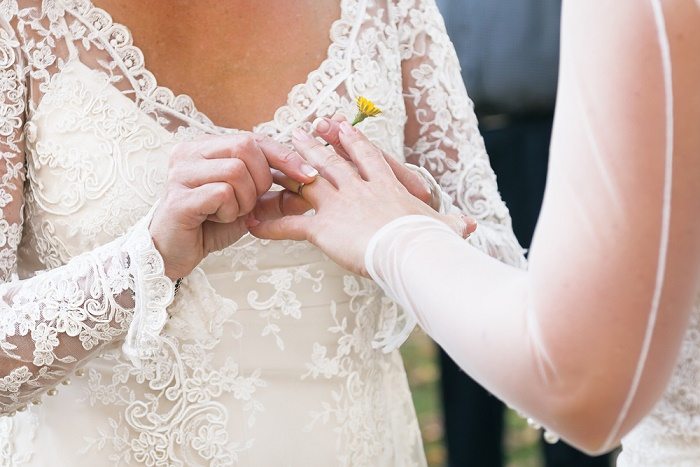Study: Marriage Equality Has Boosted State and Local Economies by $813 Million
The study released last week by the Williams Institute also says that wedding spending generated an estimated $52 million in tax revenue.

Same-sex marriage has contributed an estimated $813 million to state and local economies in the five months since it became legal nationwide, according to a new study reinforcing the idea that marriage equality can benefit business overall.
The study released last week by the Williams Institute, which researches sexual orientation and gender identity at the UCLA School of Law, also says that wedding spending generated an estimated $52 million in tax revenue.
Christy Mallory, the author of the report and a researcher at the Williams Institute, told Rewire she wasn’t surprised by the findings.
In fact, she said, the results of the study aren’t very different from previous research done by the institute suggesting that all of the states that legalized marriage equality before the Supreme Court ruling saw a boost in state and local economies due to the rapid increase in wedding spending.
“Allowing same-sex couples to marry has always had a positive impact,” Mallory said. “The only part that was somewhat surprising is how many marriages have taken place in such a short amount of time,” partly leading to the economic boost.
An estimated 96,000 same-sex marriages have been performed since June, and the Institute estimates that spending from these marriages can support up to 13,000 full- and part-time jobs in the United States. Mallory said this figure is based on data by state tourism bureaus about how much spending it takes to support one job.
Jonathan Lovitz, vice president of external affairs at the National Gay and Lesbian Chamber of Commerce, told Rewire that the study reinforces what the chamber of commerce knew all along: Marriage equality is good for business.
“Corporate America has always understood that,” he said, adding that it’s not only the wedding industry that is benefiting from marriage equality. “Now LGBT-owned businesses can start legacy- and family-owned enterprises with their partners, stuff that we weren’t able to consider before.”
Lovitz said that since the ability to legally enjoy the economic rights imbued by marriage has not been historically available to all, the chance to pass down businesses through generations has been, for some, inconceivable. He added that legacy businesses help strengthen the economy.
“Our strength in business is a quintessential ingredient to true equality,” Lovitz said.
Mallory expects that this boom in wedding spending may not last much longer, however. Typically, states that had a high demand for marriage equality saw couples tying the knot almost immediately, but after some time the marriages tapered off, she noted, and the spending along with it.
Even as marriage equality has benefited the economy, systemic homophobia has potentially stood in the way of greater gains. The study also notes that many same-sex couples spend less on marriages—about one quarter of the amount—than different-sex couples. The study blames persistent stigma and less financial family support.
Since the Supreme Court ruling, there have also been isolated cases of business owners refusing services to same-sex couples. After an Oregon baker refused his services to bake a wedding cake for a same-sex couple, many who supported the baker cited religious freedom. The baker was later sued by the couple and had to pay $135,000 in damages. New Mexico saw a similar situation when a wedding photographer refused to photograph same-sex ceremonies.
Mallory maintained that these cases are outliers, their claims of “individual religious freedom” or not. Many of the United States’ largest companies, including AT&T, Target, and American Airlines publicly support marriage equality.
“Overall, we’ve seen that as long as people are willing to spend money, businesses are willing to provide services regardless of sexual orientation,” she said.
